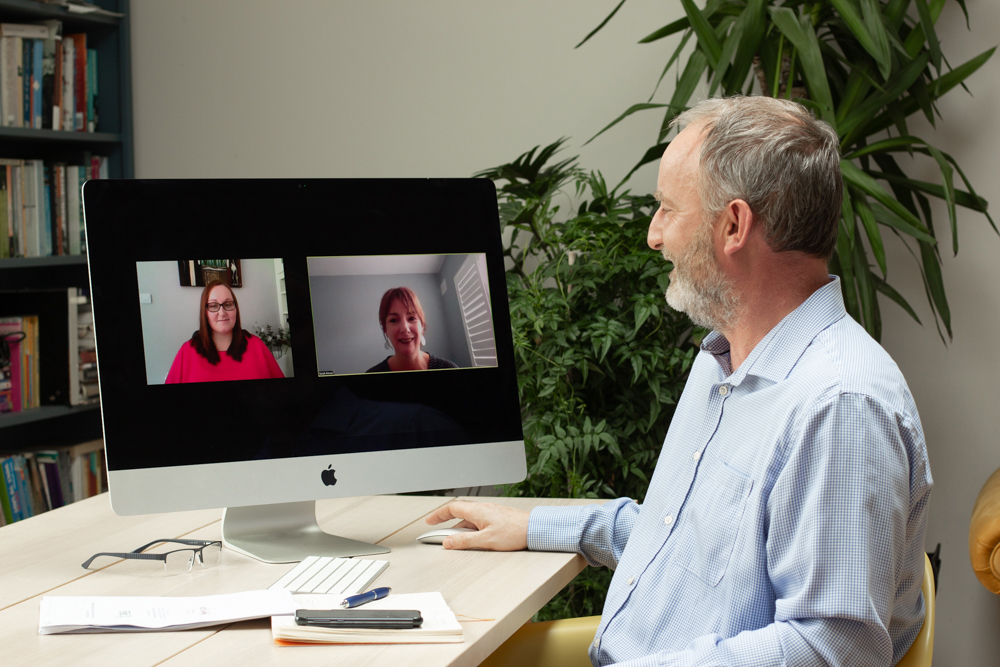Employees in Ireland are more stressed since the onset of the Covid-19 lockdown, with women feeling the strain the most.
A new study has revealed the impact of the Covid-19 crisis on Irish workers.
The study found that 60pc of employees in Ireland are feeling more stressed since the onset of Covid-19, with 67pc of women reporting increased levels of stress compared with 45pc of men.
“We are in danger of seeing employee burnout in the very near future, potentially eroding the huge strides made in improving female participation and progression in Irish workforces”
The study was commissioned by Limerick-based OMT Global, a global people development organisation, and was carried out by the University of Limerick. The study found that almost half (49pc) of women find it difficult to balance work and home life compared with 35pc of men.
More than half (51pc) of all employees reported feeling less connected to their teams while 48pc of managers reported that employees are disconnected from the organisation. Managers also highlighted their own need for support on how to manage wellbeing of their team members as they seek tools and techniques to help enhance wellbeing, motivation and morale.
Employees and managers express concerns that the social aspect of work will significantly diminish going forward impacting team motivation, engagement and, critically, the opportunities to collaborate that are vital to meeting the commercial challenges business face right now.
The hybrid future of work

Claire Harnett and Dr Sarah Kieran from the University of Limerick with Mark Doyle, CEO of OMT Global
The findings indicate a clear preference for blended working arrangements in the future with 69pc of employees indicating that they would prefer a blend of working from home and being onsite. 86pc of Managers also recognised that this is the option that their employees want. 61pc of employees however are concerned about their safety in returning to the workplace.
“Employee wellbeing should be a key concern with findings indicating stress, isolation and disconnect being an issue as a result of rapid transition to remote working”
“The findings from the survey are a wake-up call for senior leaders as the stress levels being experienced by employees, particularly female employees – are not sustainable,” warns Mark Doyle, CEO of OMT Global.
“We are in danger of seeing employee burnout in the very near future, potentially eroding the huge strides made in improving female participation and progression in Irish workforces.
“The fact that employees are feeling increasingly disconnected from their teams and their organisations is also of great concern. Leaders need to get real about the impact that Covid-19 is having on their workforce, and they need to engage directly with employees to better understand how they can be supported during these exceptional times.”
The findings of the survey indicate that the changes Covid-19 has imposed on the world of work are here to stay in some format, with a large share of companies preparing for a blend of working from home and onsite, said Claire Harnett, lecturer and PhD scholar at the Kemmy Business School at the University of Limerick.
“This is going to require strong organisational leadership and a review of HR practices.
“The need for the development of flexible work options was a strong theme in the findings of the survey. Senior managers need to engage with their employees and middle management to develop flexible working options that will address a range of their needs going forward. In doing so, employee wellbeing should be a key concern with findings indicating stress, isolation and disconnect being an issue as a result of rapid transition to remote working.
“The survey highlighted the important role that line managers play in the sense of value and loyalty that employees feel. In order to prevent further disconnect from the organisation, the needs of line mangers need to be met so that they can feel confident in managing teams remotely,” Harnett said
Accelerate the positive
Despite the stress levels, the pandemic has also accelerated many positive things around the digital transformation of work and flexible working, said Dr Sarah Kieran, researcher and lecturer at the Kemmy Business School, University of Limerick.
“There are considerable social and dynamic elements to working in teams that need to be reimagined within a more flexible world of work”
“At the same time, many businesses are in crisis and many managers and employees are experiencing significant stress. It is incumbent on business leaders to learn from surveys such as this and make the right decisions so that how we shape the new world of work is positive and sustainable for all.
“The notion of flexible working is important; it is clear now that employees are able to work well from home and see a blended way of working (partly at home and partly on-site) as the desired future state. This however requires new ways of leading, new management approaches and employee supports. The clear issue of the impact of working from home on the female workforce during the pandemic is particularly important. Into the future Flexible Working Policies should be broad reaching, meeting a diverse range of employee needs.
“The role of the manager in ensuring team connectedness is paramount. There are considerable social and dynamic elements to working in teams that need to be reimagined within a more flexible world of work. How does learning happen, role modelling behaviours, on-boarding, managing performance, contribution to business decisions and strategies? These challenges are not insurmountable but they require careful consideration by business leaders so that managers can successfully meet business needs,” Dr Kieran warned.
Written by John Kennedy (john.kennedy3@boi.com)
Published: 4 September, 2020
-
Bank of Ireland is welcoming new customers every day – funding investments, working capital and expansions across multiple sectors. To learn more, click here
-
Listen to the ThinkBusiness Podcast for business insights and inspiration. All episodes are here. You can also listen to the Podcast on:
-
Apple
-
Spotify
-
SoundCloud






